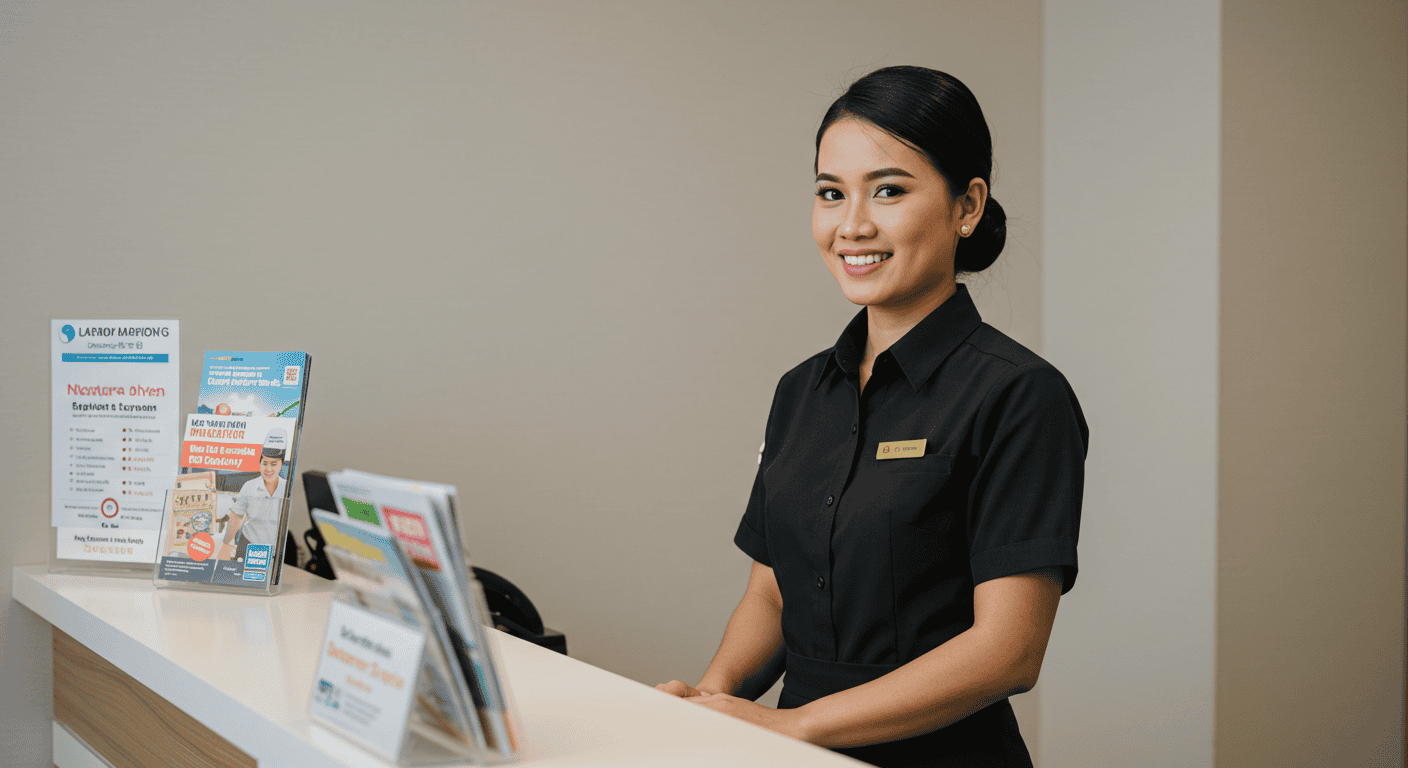Customer service training in Malaysia focuses on developing professional service skills while considering local cultural nuances, diverse customer expectations, and multilingual communication requirements. The training emphasizes creating positive customer experiences that align with Malaysian hospitality values and international service standards.
The program incorporates understanding local consumer behaviour, cultural sensitivities, and service excellence principles specific to Malaysian market needs. Special attention is given to handling diverse customer demographics and meeting regional and international customer expectations.
Customer Service Training in Malaysia
Who Should Attend Customer Service Training?
Front-line staff, customer service representatives, retail personnel, hospitality workers, and any professionals interacting directly with Malaysian customers should attend this training. This includes new and experienced staff members who need to enhance their service delivery skills.
The training is particularly crucial for service-oriented retail, hospitality, banking, telecommunications, and healthcare staff operating in Malaysia’s multicultural environment.
What Core Communication Skills Are Developed?
The training addresses essential communication skills, including multilingual customer interaction, proper greeting protocols, and effective listening techniques suitable for Malaysian service environments. Participants learn appropriate language usage, tone modulation, and cultural sensitivity in communication.
Special emphasis is placed on developing proficiency in handling customer interactions in Bahasa Malaysia, English, and other commonly used languages while maintaining professional service standards.
How Is Cultural Sensitivity Addressed?
Participants learn to understand and respect cultural differences when serving Malaysia’s diverse customer base. Training covers appropriate behaviour and communication styles for different ethnic groups, religious considerations, and cultural practices that impact service delivery.
The program emphasizes developing cultural intelligence and adaptability in service provision while maintaining professional standards across different cultural contexts.
What Complaint Handling Techniques Are Covered?
The training addresses effective complaint resolution methods suitable for Malaysian customer expectations, including proper escalation procedures, service recovery techniques, and professional composure during challenging situations. Participants learn to handle complaints while preserving customer relationships.
Special focus is given to culturally appropriate ways of addressing customer dissatisfaction and implementing effective service recovery strategies in the Malaysian context.
How Is Product Knowledge Integration Managed?
Participants learn techniques for effectively communicating product and service information to different customer segments. Training covers building comprehensive product knowledge and presenting information in customer-friendly ways suitable for Malaysian consumers.
The program emphasizes developing confidence in product recommendations while considering local customer preferences and needs.
What Digital Service Skills Are Enhanced?
Training covers digital customer service channels, including social media, live chat, email, and virtual support platforms commonly used in Malaysian businesses. Participants learn to maintain professional service standards across different digital platforms.
Special attention is given to digital etiquette, response time management, and maintaining personal touch in virtual customer interactions.
How Is Service Excellence Standardization Achieved?
Participants learn standard operating procedures for consistent service delivery across different situations and channels. Training covers service quality metrics, performance standards, and evaluation methods used in Malaysian service industries.
The program emphasizes developing and maintaining service excellence benchmarks while adapting to local market expectations and industry standards.
What Problem-Solving Skills Are Developed?
The training addresses effective problem-solving techniques for common customer service scenarios in Malaysian business contexts. Participants learn to analyze situations, identify solutions, and appropriately respond to customer needs.
Special focus is developing creative problem-solving abilities while working within organizational guidelines and Malaysian consumer protection regulations.
How Is Team Collaboration Enhanced?
Participants learn effective teamwork approaches for delivering consistent service experiences in Malaysian organizations. Training covers internal communication, service handover procedures, and cross-departmental collaboration for seamless customer service.
The program emphasizes building strong service teams while maintaining individual accountability for customer satisfaction.
What Emotional Intelligence Skills Are Covered?
Training develops emotional intelligence capabilities for handling diverse customer interactions in Malaysian service environments. Participants learn to understand and manage both customer and personal emotions effectively.
Special attention is given to maintaining professional composure while dealing with different customer personalities and emotional situations common in service delivery.
How Is Sales Integration Handled?
Participants learn to integrate sales techniques with customer service delivery in ways that respect Malaysian consumer preferences. Training covers identifying sales opportunities, making appropriate recommendations, and maintaining service quality during sales interactions.
The program emphasizes developing consultative selling skills while maintaining trust and professional customer relationships.
What After-Sales Service Skills Are Enhanced?
Training covers effective after-sales support techniques, including follow-up procedures, relationship maintenance, and long-term customer engagement strategies suitable for Malaysian market expectations.
Special focus is building customer loyalty and maintaining positive relationships through professional after-sales service delivery.

